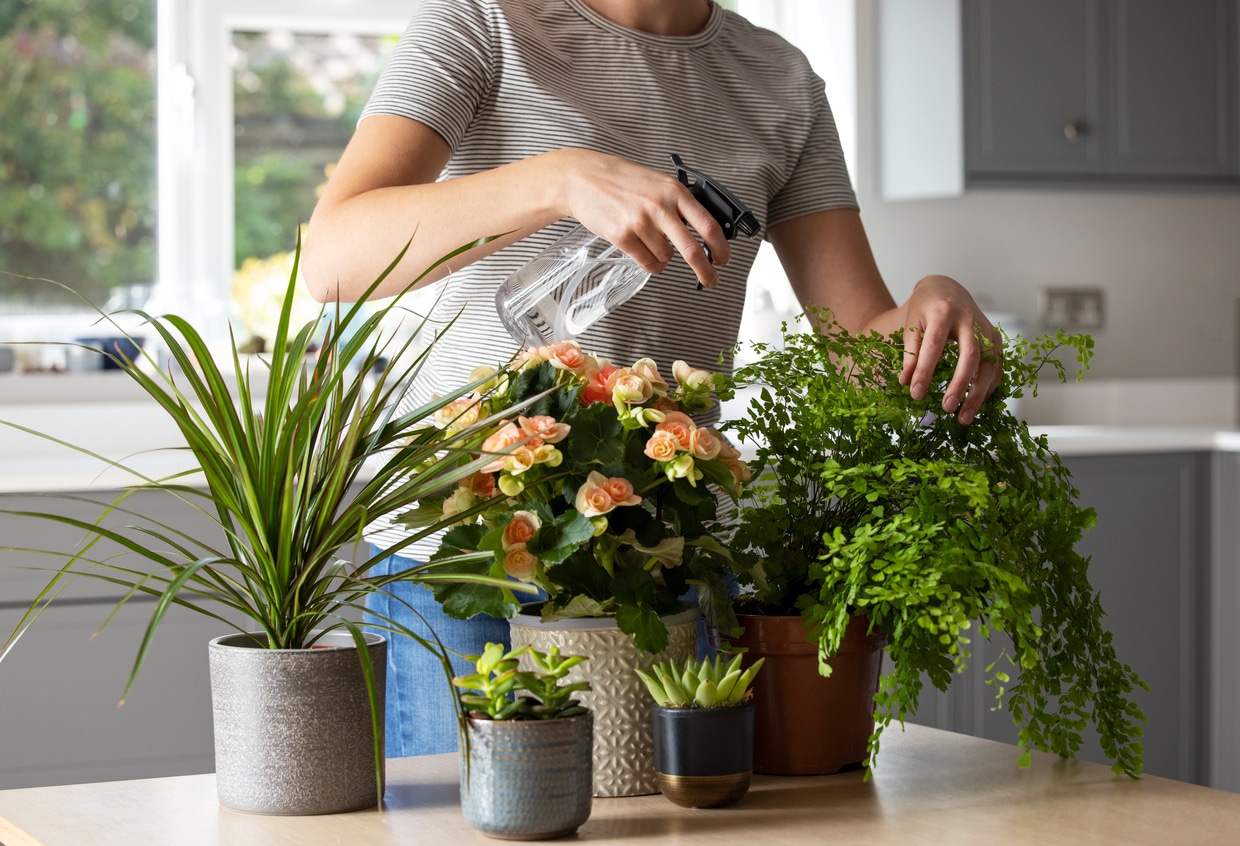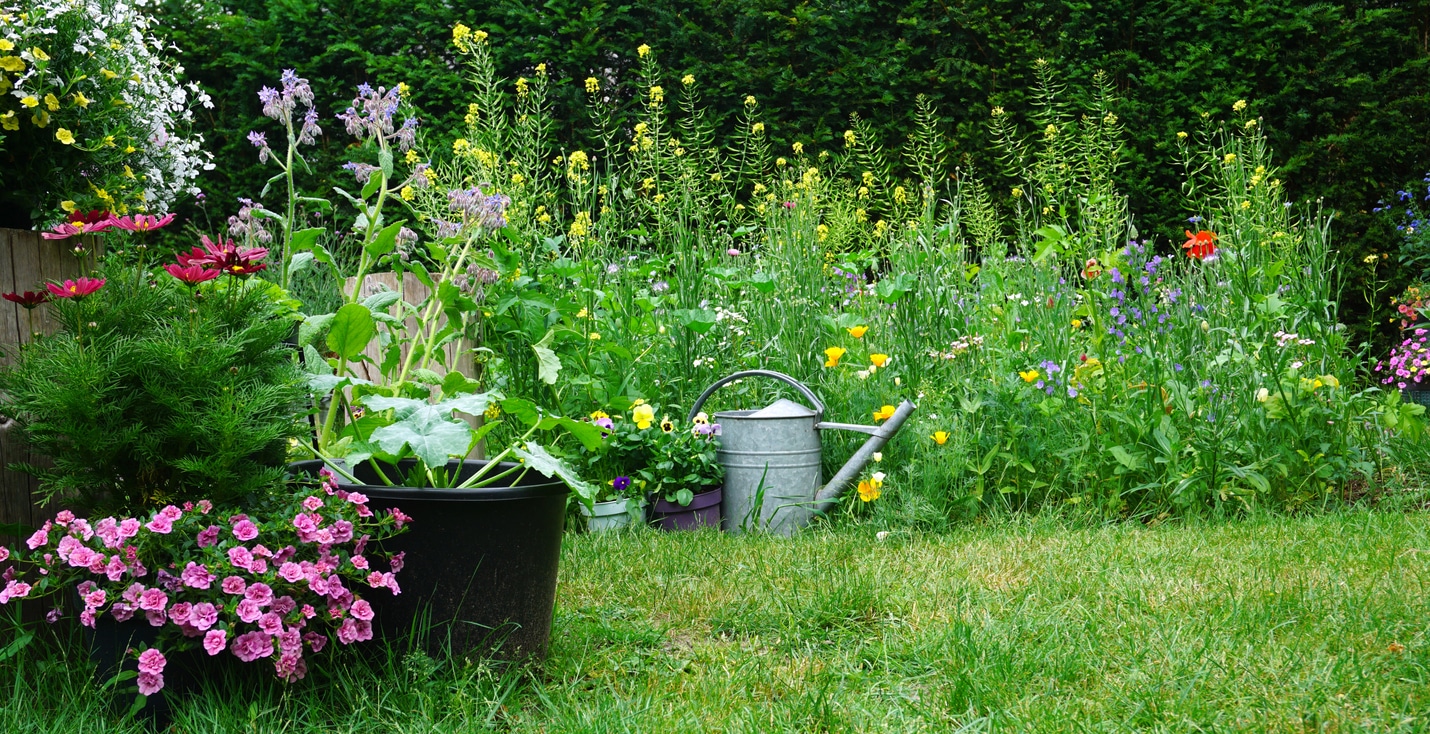
7 Natural Insecticide Alternatives For Use In And Around Your Home
The sight of cockroaches scurrying when you switch on the lights can give you the screaming horrors. Ants crawling all over your kitchen counter can send you running for the insect spray. Aphids covering the leaves of your favorite plants may have you considering tossing them out. But, what options do you have beyond a toxic insecticide or chemicals to get unwanted insects out of your house or garden?
Fortunately, there are healthier options that may do a better job of addressing the underlying cause of the infestation. Here are seven natural alternatives to insecticides to use in and around your home.
The Problems With Pesticides
Pesticides work by disrupting the insect life cycle — but anything toxic against one life form is likely to have adverse effects on others. For example, Monsanto has faced constant lawsuits over the glyphosate in Round-Up causing cancer, but all the money in the world won’t restore health. Do you want to risk using similar substances around your pets, your children or yourself?
7 Natural Alternatives to Insecticides to Try
Natural alternatives involve working with biology, instead of against it, to avoid insects and pests. It may mean removing places where they hide, using natural predators or involving plant-based substances made to repel unwanted bugs. Often, addressing the underlying cause of the infestation — such as a pile of rotting basement boxes where cockroaches nest — fixes the problem better than chemicals.
With the high demand for natural solutions, you might even be able to turn a profit with your skills or, at least, keep yourself busy in retirement.
Here are seven, natural alternatives to pesticides to keep your home and garden pest-free:
1. Assess Your Landscaping Choices
Bugs often enter from outdoors, especially when nearby exterior conditions make them proliferate. Do you have bowls of standing water, maybe for your pets, attracting flies and mosquitos? A woodpile stacked against your house, increasing your infestation — and wildfire — risks? Do you keep at least two feet of space between plants and your foundation or do shrubbery and vines coat your home’s exterior? Addressing these conditions can stop an infestation before it starts.
If you want to give the bugs an alternate place to go, build a bug hotel. It’ll attract the bugs to it and away from your home.
Urban landscapes offer different challenges. For example, what if you suspect the infestation in your apartment stems from boxes of heaven-knows-what in a basement storage area? Can you coordinate with management and possibly enlist other residents to clean up the mess? It’s worth checking out.
2. Use Biological Control
Another natural alternative to an insecticide is harnessing the power of predators. For example, ladybugs have a longstanding reputation for keeping aphids off rose bushes. Birdhouses invite avian friends and a bat house can make your backyard a much more pleasant place to sit on summer evenings, free from mosquitoes. Beneficial nematodes destroy insects and their grubs in the soil, including crane flies, gnats and beetles.
3. Try Oil or Castile Soap
While you might have heard of using dish soap as an insecticide, you should avoid doing so on plants as it strips their waterproof coating. Instead, use an oil-based soap like castile, mixing two or three tablespoons with each gallon of water. Some people add an extra tablespoon of vegetable oil.
4. Spice It Up
Insects can’t stand the smell of certain substances. You can use essential oils, or crush the plants themselves, depending on whether you want an indoor or outdoor application.
Garlic and chili peppers can repel insects in your garden, keeping them out of your home. Mix crushed dried chilis and garlic bulbs in a spray bottle with water and coat your plants with it. You might even incorporate these ingredients into your insecticidal castile/vegetable oil formula.
For indoor use, you can use essential oils with your favorite scents as a natural insecticide. You probably know citronella, but if you don’t want the inside of your home to smell like your favorite picnic spot, try one of these alternatives:
- Tea tree oil
- Eucalyptus
- Peppermint
- Thyme
- Rosemary
- Cinnamon
5. Spray Neem
Neem may sound like a chemical, but it’s a natural substance from the neem tree. It acts as a repellent and also impacts the reproductive system, making it harder for insects to lay eggs and proliferate.
Although it’s harmless to mammals, birds, bees and plants, you should avoid extended contact with it if pregnant. Rats who were fed neem oil in one study lost their pregnancies, although it did not affect the offspring of rats who consumed it throughout their lifetime in another study.
6. Use Diatomaceous Earth
Diatomaceous earth dries up the oils and fats from an insect’s exoskeleton, causing them to die. This method works particularly well against cockroaches, so sprinkle this stuff everywhere in your apartment if you have an infestation. You can attract the critters to it by mixing it with equal parts flour or cocoa powder, depending on whether you have light or dark decor. Apply it anywhere you see the pests.
7. Tidy It Up
Insects are attracted to food sources. Dust, mop and vacuum up any crumbs. Take out your garbage, recycling and countertop compost regularly and avoid letting dishes pile up in the sink.
Natural Alternatives to Pesticides
Creepy crawlies in your home or garden can give you a fright. Even if you aren’t squeamish, they make your pad look untidy and can ruin your garden. Instead of toxic chemicals, try one of these natural insecticide alternatives to use in and around your home. There’s no need to harm you or your family’s health to remain pest-free.




Post a comment